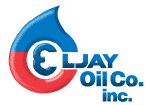Introducing a New Line of Greases to Keep Equipment Humming

What differentiates one grease from another? Hint: it’s not the color. Let’s put that notion to rest. Color is primarily a marketing tool to help customers distinguish greases, and every producer’s color scheme is different. The dye has nothing to do with grease performance.
A key differentiator in a grease is the thickener. While the base oil gives the grease its lubricating properties, the thickener is what gives it structure, its “greasy” consistency, and holds the formulation together. The thickener acts as a “sponge” that evenly distributes the base oil and additives, while helping mitigate leaking and seal out moisture.
In an earlier posting, we detailed the three most widely used thickener types: polyurea, lithium and lithium complex, and overbased calcium sulfonate. Lithium and lithium complex-based greases have historically been the most in demand and held a dominant market share globally. However, as we previously pointed out, lithium supplies have become scarce, largely due to demand for lithium batteries in appliances, electronic devices, and electric vehicles. As a result, the price of lithium has skyrocketed exponentially over the past decade. The cost of lithium is the predominant cost component in the price of a lithium grease.
In addition to questions about future availability, lithium has also come under sharper regulatory scrutiny due to toxicology concerns. In the European Union, regulators have proposed classifying lithium as a substance known to contain toxins or carcinogens*.
Understandably, industrial users of grease are looking for alternatives to lithium greases that will help them sustain production and control their operating costs without compromising performance. The quality of grease has become more important in recent years, as today’s technologically advanced equipment and machinery have been designed to run faster and longer, typically under hot and harsh conditions. As a protective lubricant for bearings, bushings and other intricate components in heavy-load applications, grease is a major factor in optimizing equipment performance and productivity.
Chevron has been studying this issue for several years. In that time, we have seen overbased calcium sulfonate emerge as the most promising thickener alternative for applications that currently rely on lithium-based greases. Our research has shown that greases thickened with overbased calcium sulfonate complex exhibit superior performance in heavy duty and extreme pressure applications compared to other thickener types. They have been shown to withstand oxidation, high operating temperatures and water. Moreover, overbased calcium sulfonate greases are closer in compatibility with lithium greases, while polyurea and other thickeners are incompatible with the most widely used grease products. All of this helps explain why overbased calcium sulfonate grease is the fastest-growing category of grease by thickener type, showing a steady upward trend in response to global market demand.
Now, Chevron has launched a new family of overbased calcium sulfonate greases under the brand name, Rykon® grease. Rykon comprises the highest-performing, premium greases in our grease product line, providing optimal equipment protection in heavy duty and extreme pressure applications. They are formulated to provide exceptional load carrying capability and prevent “seizures,” or failure of moving parts in heavy duty equipment. And they are proven to perform in harsh conditions, including extremely high and low temperatures. With superior durability, Rykon greases can stay in service longer and help reduce greasing intervals and overall consumption.
The issues with lithium and a similar shortage of polyurea have shaken up the grease market in recent years. With the Rykon launch, Chevron aims to restore some stability by providing customers with a grease alternative that meets or exceeds performance requirements and expectations, helps control operating expenses, and is readily available with a steady supply.
